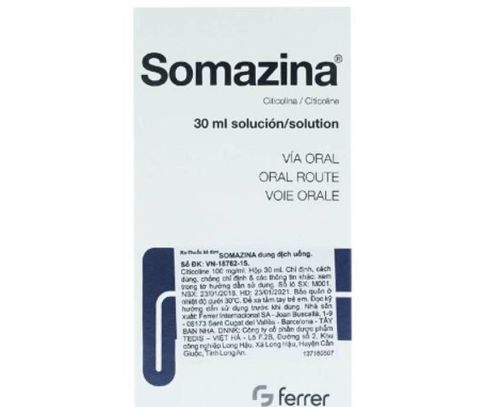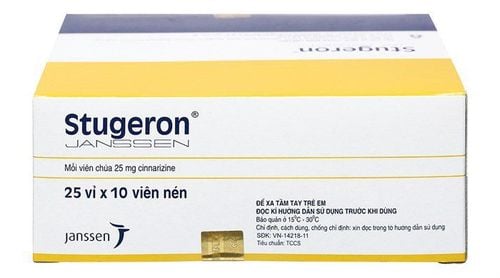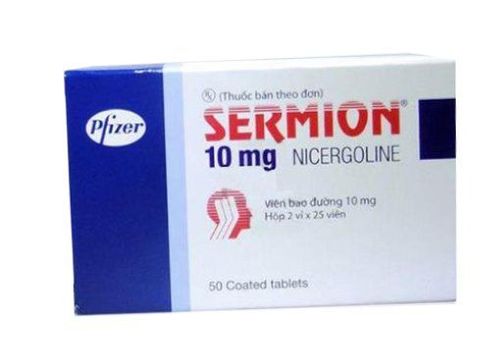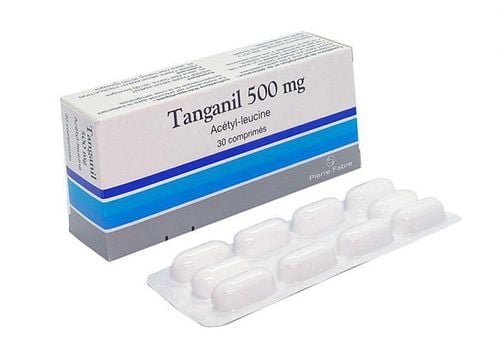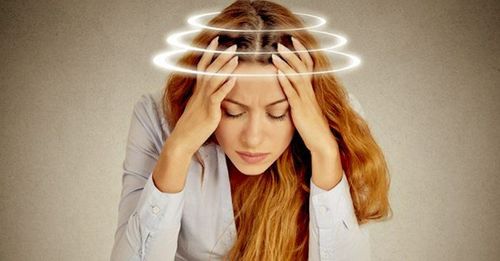Psychological stress due to work pressure, study, or living in a noisy environment, and changes in weather and climate are also causes of headaches and vascular spasms in the temples, which are increasing in all ages and often recur.
1. Migraine headaches in the temples
1.1. What are migraine headaches?
Migraine headaches are headaches caused by the constriction of blood vessels in the head, brain, and temples. The most common is the constriction of the arteries in the temples. The constriction of the arteries will cause some areas of the brain and muscles in the head and neck to temporarily lack blood, causing a pain reaction when there is a lack of blood and oxygen. This is especially common in patients who are often stressed, anxious, or depressed.
1.2. Causes
The main causes of migraine headaches are work and study pressure, psychological instability, living conditions in noisy environments, and changes in weather and climate. Migraine headaches can occur at any age, especially in young people.
1.3. Symptoms of Migraine headaches
Migraine headaches often present with headaches accompanied by eye pain on the affected side. It can be one-sided or bilateral temple pain. The main symptom is severe, throbbing headaches that last in the temples and forehead, with patients feeling nauseous and possibly vomiting. Headaches would increase with movement.
In addition, migraine headaches can cause a lack of blood to the brain, often manifesting as dizziness and fatigue. People with migraine headaches are sensitive to light and noise, and may fear light and noise.
Migraine headaches are often challenging to treat definitively and tend to recur. When experiencing migraine headaches, treatment can involve using vasodilators to alleviate the pain. However, patients should not self-medicate and must consult a doctor for examination and follow the doctor's instructions.
If migraine headaches are not treated promptly, the condition will worsen, leading to prolonged lack of blood to the brain. This lack of oxygen to the brain can cause strokes and even result in paralysis of half the body or limbs.
1.4. Migraine headaches are prone to recurrence
Migraine headaches often recur due to risk factors that are often associated with unhealthy lifestyle habits and environmental factors, such as:
- Nervous tension, stress, work and life stress, and insomnia.
- Women using contraceptive pills, during menstrual cycles, changes in female sex hormone levels in the blood.
- Weather changes.
- Living in noisy environments, exposure to bright lights, cigarette smoke, and strong odors like concentrated perfumes.
- Patients who have had head injuries.
- Changes in female hormones: Some women often have headaches right before or during their menstrual cycle. Some contraceptive pills can increase or decrease the frequency of headaches.
- Consuming certain foods such as chocolate, cheese, canned foods, and some additives like monosodium glutamate found in many foods can cause headaches.
- Consuming alcoholic beverages or drinks containing caffeine such as wine, coffee, etc.
- Migraine headaches often occur when your physical condition is not good, the weather changes, or there may be sudden changes in air pressure.
- Some people may experience headaches when there is a change in their biological rhythm, such as sleeping too much or having insomnia, or when engaging in excessive physical activity or overexertion during exercise.
With the characteristics and clinical symptoms of migraine headaches, it is easy to diagnose but often confused with tension headaches or vestibular disorders. Therefore, treatment will be less effective, the disease is easy to recur and worsen, making it difficult to treat.

Women using oral contraceptives, to the menstrual cycle, the concentration of female sex hormones in the blood is changed. Weather changes. The environment is noisy, there are bright lights, cigarette smoke, some strong scents like concentrated perfume. The patient has had a head injury. Changes in female hormones: Some women experience headaches just before or during their period. Some birth control pills can increase or decrease the frequency of pain. Consuming certain foods such as chocolate, cheese, canned foods, some additives such as monosodium glutamate found in many foods can cause headaches. Using alcoholic beverages or drinks containing a lot of caffeine such as wine, coffee, ... Vasomotor headaches often occur when your physical condition is unwell, the weather changes or it may be due to air pressure. sudden change. Some people may experience headaches when their circadian rhythm changes, such as too much sleep or insomnia, or when they are physically active or exercise too hard. With the characteristics and clinical symptoms of vasomotor headache, it is easy to diagnose but often confused with tension headache, or vestibular disorder,... Therefore, the treatment will be less effective. , the disease easily recurs and causes more severe, difficult to treat.
2. Prevention
When experiencing any symptoms of migraine headaches causing temporal artery spasms, it is essential to visit reputable medical facilities for appropriate examination and treatment. Treatment medications include pain relief drugs and preventive medications.
- Pain relief can be managed with analgesics such as paracetamol, non-steroidal anti-inflammatory drugs (NSAIDs), and triptan medications. However, patients should not self-medicate without a doctor's prescription, as this can lead to drug resistance and potentially cause liver and kidney failure due to unwanted side effects.
- Add plenty of green vegetables and essential nutrients like zinc, iron, magnesium, vitamin K, and B6 to your daily meals.
- Avoid consuming foods or drinks with stimulants, and limit exposure to cigarette smoke and absolutely do not smoke.
Preventive measures to reduce the frequency of migraine headaches recurrence:
- Individuals with migraine headaches should maintain a comfortable psychological environment, avoid anxiety and sadness, and limit stress-inducing stimuli.
- Reduce work intensity, avoid tasks that require excessive thinking or brainstorming, tasks that affect the nervous system in general and the temporal lobes in particular, avoid overexertion and excessive exercise.
- Improve quality of life and live healthily by exercising regularly, such as walking, cycling, swimming, yoga, and tai chi.

- Regular exercise combined with physical therapy can help treat migraine headaches.
- Avoid certain foods containing tyramine found in eggs, milk, and alcohol, as these foods can release serotonin, leading to headaches.
- Women should prevent migraine headaches during hormonal changes such as early puberty, monthly menstrual cycles, or perimenopause.
Individuals with migraine headaches should have a general health check-up every six months to identify causes and receive appropriate treatment advice, preventing dangerous complications from migraine headaches.
At Vinmec Times City International General Hospital, the neurology department within the clinical medicine division specializes in examining and treating diseases related to the central nervous system, including the skull, brain, cerebral blood vessels, meninges, cranial nerves, pituitary gland, spine, intervertebral discs, spinal cord membranes, and peripheral nervous system (nerves and ganglia outside the brain and spinal cord).
With a team of leading specialists nationwide, not only highly skilled but also with many years of experience and modern equipment, advanced facilities.
To arrange an appointment, please call HOTLINE or make your reservation directly HERE. You may also download the MyVinmec app to schedule appointments faster and manage your reservations more conveniently.
